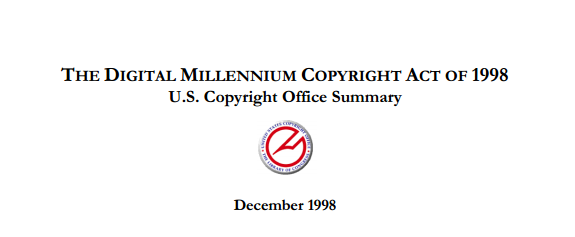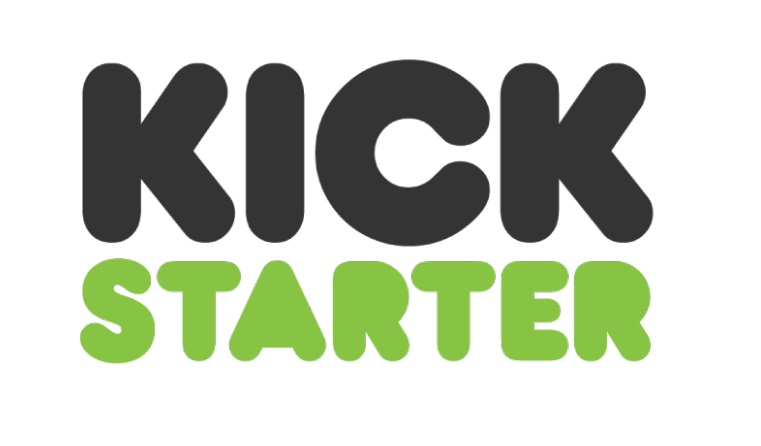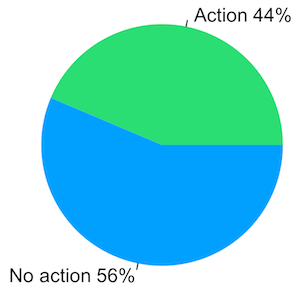Recently, Kickstarter shared their transparency report for 2014 which discusses exactly how many campaigns were hit with DMCA claims, as well as how many were challenged, how many held, and the like. This is immensely valuable information for fans of Kickstarter but also for those who have managed to avoid using the service to this point. Years after its inception, the sentiment that crowdfunding is a breeding ground for illegal activity or scams still exists. In fact, in light of recent disastrous campaigns it appears to be growing yet again. Although looking at a transparency report doesn’t suggest how many campaigns fail of their own volition, it does show how many might never be allowed to reach their goal because of copyright law.
Kickstarter reports they received 282 DMCA claims in 2014. However, because one campaign can receive multiple claims, there were only 240 projects hit in all. As it turns out, this was an incredibly small 0.3% of all projects launched for the year. That means there were approximately 80,000 projects launched on Kickstarter in the last year. Holy smokes, right?! When you consider there being thousands of projects every month and somehow only a measly amount get hit with claims, well, that shows perhaps things aren’t as bad as they seem.
With that said, from this 282 total claims, 159 of claims were rejected by Kickstarter while 123 necessitated response. Again, that cuts down the number again since not all DMCA claims are valid. Right now only 46 projects are hidden due to DMCA. When you take a look at the category breakdown there’s an interesting conclusion to be made. Not every project type receives the same attention, after all. Design, technology, and games categories make up the ones most regularly hit with claims. As was evidenced from our video game-specific DMCA post, there have been a small selection of games which had run ins with it over the years. But, this isn’t common. For photography, theater, and journalism you apparently rarely need to fear DMCA at all.
The other portion of the transparency report discusses trademark claims. These actually are not part of DMCA, though they can result in the same reaction. A campaign may be hidden, or asked to resolve the issue with the claimant. Interestingly, there were far fewer trademark issues – only 28 claims in 2014. With such a tiny sum the breakdown between which were actionable is even smaller. 12 claims required campaigns to be hidden, and 4 required the submitter of said claim to resolve the issue with the targeted project’s owner. In comparison to the 46 hidden projects due to DMCA, only 10 are hidden due to trademark issues.
Finally, there’s the worrisome business of Kickstarter being forced to provide data to government and law enforcement agencies. Yes, it has happened before. 2014 saw 6 government requests from the US and 2 from Europe. Of this selection, the 3 acted upon were due to subpoenas. Kickstarter only provided a certain selection of data in each case, however, which was relevant to their needs. There certainly is a real potential for concerns about people’s right to privacy here, but at least thus far Kickstarter hasn’t provided user (backer) information to any agency. There may be a day when this happens, but not yet – not in this year or prior.
What should be the takeaway of all this? Basically, for as massive as Kickstarter is, they have a very small percentage of problematic campaigns (in regards to flagrant disregard for copyright and trademark law). The same is honestly probably true of successful campaigns which fail to produce a product in the end. Yes, we’ve seen a few massive ones, but everyone always seems to flock to those rare instances. What about the hundreds of games launching on digital storefronts without much issue? One must always keep themselves focused on the big picture. With that said, I understand the temptation to obsess over failed campaigns, but don’t let it skew your perspective.
On the other hand, just because so few DMCA and trademark claims have been filed doesn’t mean that this is all there is. There’s no doubt in my mind that these numbers are under reported to some degree. For example, that Metal Gear Solid 1 PS4 remake campaign was never targeted by Konami or anyone related to them (at least, as far as we know). After a few days of no backers the project lead just canceled the thing themselves. Had it gained traction things would’ve been different. So I believe that this transparency report is missing some horrible campaigns which fly under the radar, although by how much is anyone’s guess.
If you are someone who fears the freewheeling nature of Kickstarter, you’re not alone. However, recognize that many project owners know what they’re doing. The amount of campaigns targeted by something which may put a halt to their success is so small that it isn’t even the main concern to have. Instead, potential backers should consider the creators themselves, their ability to explain what exactly they’re creating, and to ensure that nothing seems “too good to be true.” Backing campaigns does require care, but at least when it comes to copyright, trademark, and governmental concerns we can feel safe knowing it’s not a super common occurrence.






I have mixed feeling on the DMCA. On one end I think it’s important for copyright holders to have a way to protect there IP’s, however its also important that the laws are realistic in how they are enforced especially when it come to fair use.